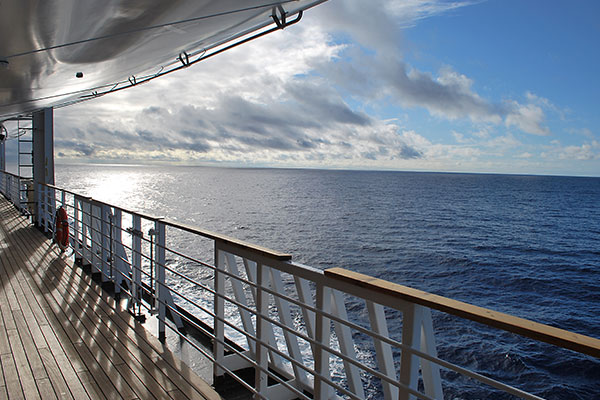A groundbreaking study is set to redefine the cruise industry’s approach to sustainability. Initiated by Clia, this research will focus on the industry’s long-term environmental goals.
This initiative stands out as a significant step towards aligning with global environmental standards, aiming at providing clear strategies up to the year 2050.
The Future of Cruise Sustainability
A new study aims to illuminate the pathway towards a sustainable future for the cruise industry. Commissioned by Clia, this research seeks to map out the industry’s energy needs, infrastructure, and regulatory requirements with projections extending to 2050. It’s poised to steer the cruise sector towards alignment with the International Maritime Organisation’s 2030 and 2050 environmental goals.
The initiative is not alone in its ambition. Cruise industry leaders are concurrently urging governments to expedite the production of sustainable marine fuels. By 2025, Clia estimates that Europe will require 44,000 tonnes of these fuels to align with the 2030 EU decarbonisation goal. Government collaboration is deemed essential.
Government Role and Infrastructure
At a recent summit in Genoa, cruise industry chiefs called on governments to establish ambitious production targets for synthetic and biofuels. Additionally, they advocate for reinvesting maritime revenues from the EU Emissions Trading Scheme into necessary infrastructure to support renewable energy solutions at a feasible cost.
Jason Liberty, President and CEO of Royal Caribbean Group and Global Chair of Clia, emphasised the industry’s significant investments towards low-to-zero carbon fuels. He stated, “Collaboration with our industry’s global leaders and change-makers is critical to ensure that sustainable marine fuels are available, affordable, and scalable.”
Global Analysis and Research Scope
The research promises a ‘holistic view’ of the cruise industry’s infrastructure and regulatory needs outside Europe.
This exploration aims to provide clarity on the volume and types of energy carriers required to meet future decarbonisation targets.
Furthermore, it will estimate the locations and size of infrastructure needed to bolster cruise itineraries and technologies, considering global investment prospects.
Technological Advancements in Cruise Fuel Development
The study forecasts the production of cruise ships with advanced fuel systems. Over the next five years, it is projected that there will be 55 new cruise ships ordered globally, demanding an investment of €33.9 billion. Among these, 36 ships will be powered by liquefied natural gas (LNG), while seven will be equipped for methanol use.
By 2028, over 70% of Clia-member cruise line fleets will possess shoreside power capability. This indicates a robust commitment by the industry to embrace technological advancements in sustainable energy solutions.
Environmental and Economic Impacts
The cruise sector’s environmental aspirations will potentially set benchmarks for maritime environmental stewardship for decades.
By investing in sustainable practices and technologies, the cruise industry not only aims to reduce its carbon footprint but also anticipates economic benefits through increased energy efficiency and potentially lower operational costs.
This study is expected to play a pivotal role in guiding the cruise industry’s sustainable transformation.
Stakeholder Engagement and Support
Clia’s proactive stance highlights the importance of stakeholder engagement in the industry’s green transition. Ports, governments, and local communities are seen as essential partners in realising these efforts.
The study outcomes are expected to inform stakeholders about crucial infrastructure investments required and the benefits of a collaborative approach to sustainability.
Conclusion of the Study
Rina anticipates that the findings will profoundly shape the cruise industry’s sustainability roadmap. The vision set forth by this study is expected to be a benchmark for others, guiding the sector towards long-term environmental and economic sustainability.
The study commissioned by Clia is positioned to guide strategic decisions, empowering the cruise industry towards a sustainable future. With comprehensive analysis and stakeholder collaboration, it promises to establish new environmental benchmarks.

